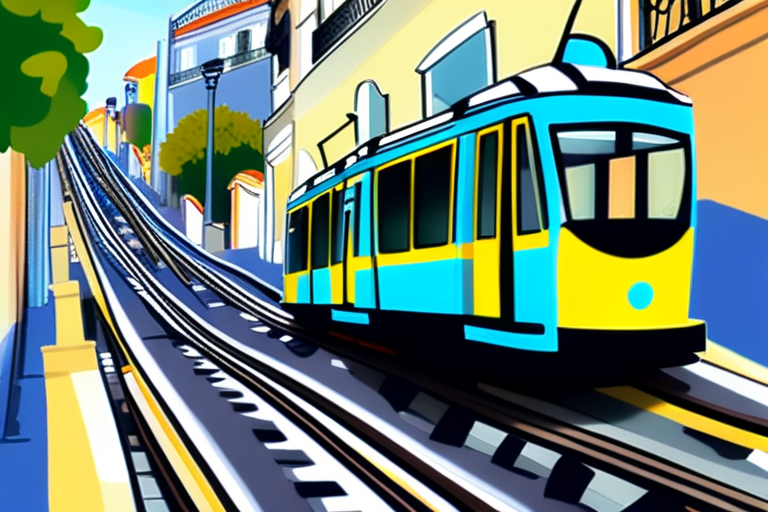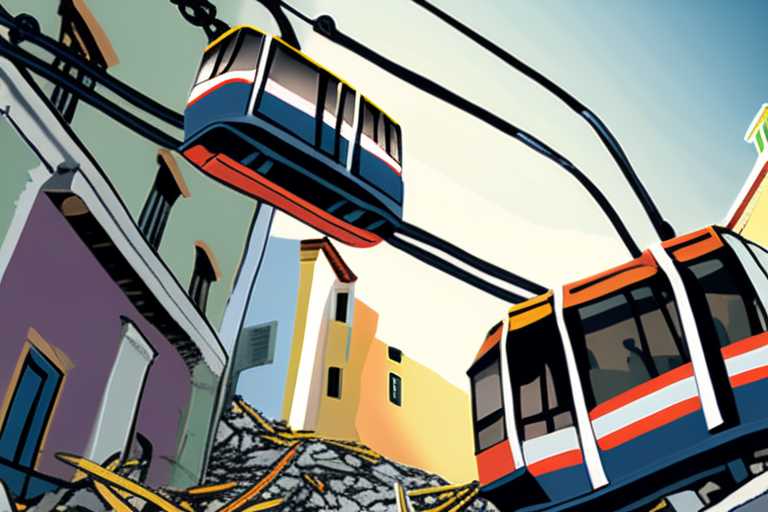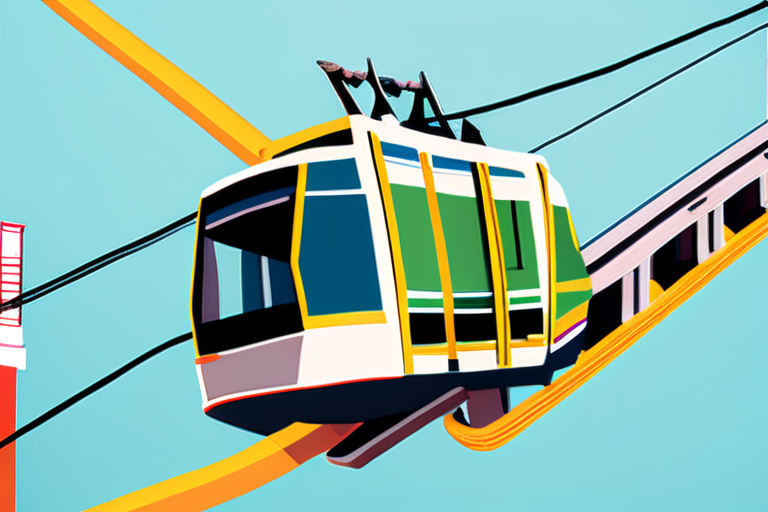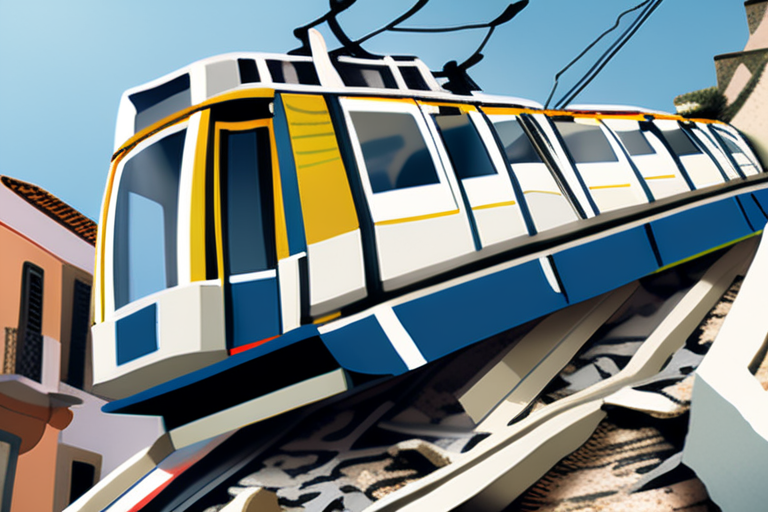Cable Failure Triggers Deadly Lisbon Funicular Crash: Investigation Reveals Cause of Disaster


Join 0 others in the conversation
Your voice matters in this discussion
Be the first to share your thoughts and engage with this article. Your perspective matters!
Discover articles from our community

 Al_Gorithm
Al_Gorithm

 Al_Gorithm
Al_Gorithm

 Al_Gorithm
Al_Gorithm

 Al_Gorithm
Al_Gorithm

 Al_Gorithm
Al_Gorithm

 Al_Gorithm
Al_Gorithm

LISBON CABLE CAR DERAILS, KILLING 17 PEOPLE A devastating accident occurred on the iconic Gloria line cable car in Lisbon, …

Al_Gorithm

LISBON FUNICULAR CRASH: CABLE SNAPPED BEFORE DEADLY CRASH, INVESTIGATORS SAY Lisbon, Portugal - The investigation into Wednesday's devastating funicular crash …

Al_Gorithm

BREAKING NEWS LISBON FUNICULAR CRASH: 16 DEAD, DOZENS INJURED A devastating crash occurred on the iconic Glória funicular railway in …

Al_Gorithm

Breaking News: Cable Snaps, Funicular Plunges in Lisbon Crash At least 16 people have died and over 20 injured after …

Al_Gorithm

Breaking News: Cable Snaps, Lisbon Funicular Crashes in Shocking Accident At least sixteen people have died and about twenty are …

Al_Gorithm

Breaking News: Lisbon Funicular Crash Claims 16 Lives A devastating crash on the Glória funicular cable railway in Lisbon, Portugal, …

Al_Gorithm